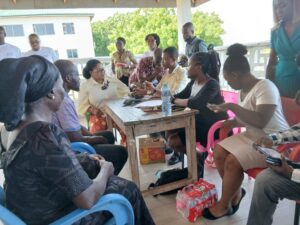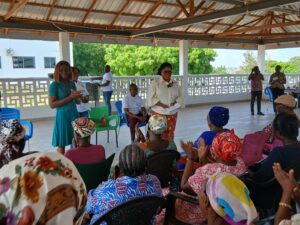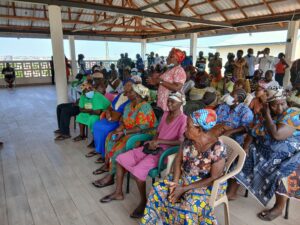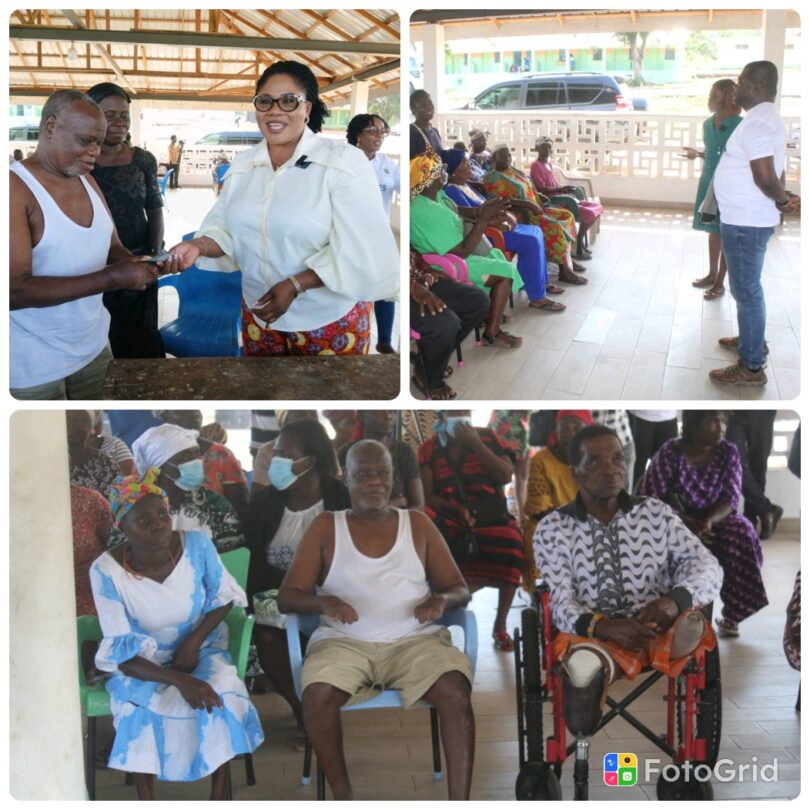Report By: Ishmael Barfi
The Livelihood Empowerment Against Poverty (LEAP) program has been a lifeline for millions of Ghanaians living in extreme poverty.
According to Colson Akanbasiam, the Head of Communications for the LEAP program, it has undergone significant changes over the years to improve its efficiency and impact.
Mr. Akanbasiam highlighted key changes, including the shift from paper-based targeting to electronic data collection and payment systems.
This transition has streamlined the program’s operations and reduced errors.

Gender Minister observes disbursement processes
Interacting with the media at the sidelines of the initial disbursement of the grant at the Weija Leprosarium, he noted that the National Household Registry, a digital database of beneficiary households, has also been instrumental in tracking beneficiary data and ensuring efficient disbursement of grants.
Emphasizing the program’s relevance, Mr. Akanbasiam reiterated that the LEAP program focuses on supporting extremely poor households, particularly vulnerable groups such as those living in leprosy camps.
“These groups have been included as part of the government’s efforts to protect the most vulnerable populations”, he asserted.
Adding the program employs a proxy means test questionnaire to assess household poverty status and determine eligibility for the grant.

Gender & Social Welfare Minister interacting with beneficiaries
Discussing the impact on beneficiaries, Mr. Akanbasiam pointed out that the LEAP program provides them with a regular source of income to support their basic needs.
Beneficiaries are encouraged to use the grants wisely, investing in nutrition, education, and health.
Additionally, the program conducts sensitization exercises at every pay point to educate beneficiaries on maximizing the use of the grant.

Some beneficiaries at the disbursement center
He stated that the LEAP program is fully government-owned, and the government has shown its commitment by gradually increasing the grant amount over time.
However, he acknowledged that sustainable funding remains a challenge, and efforts are being made to ensure timely disbursement of grants.
Currently, the LEAP program covers approximately 350,000 households nationwide, with plans to expand its reach to more extremely poor households.
The Ghana Statistical Service estimates that there are 2.4 million extremely poor individuals in the country, and the LEAP program aims to assist as many of these households as possible.
Source: www.thenewindependentonline.com







